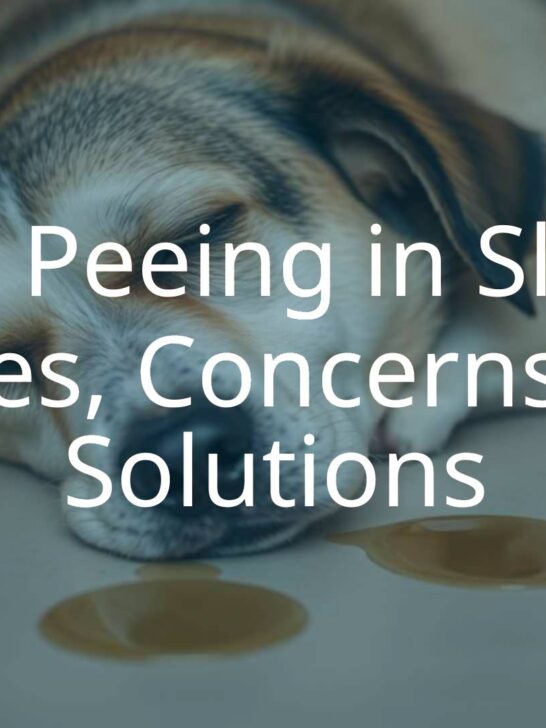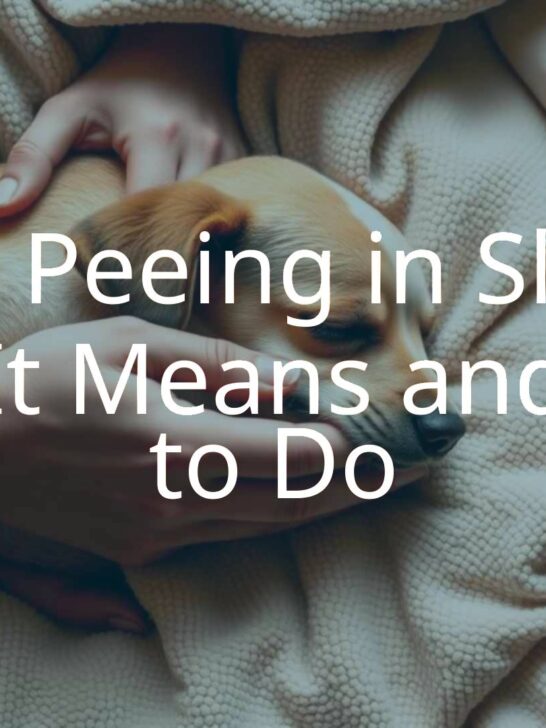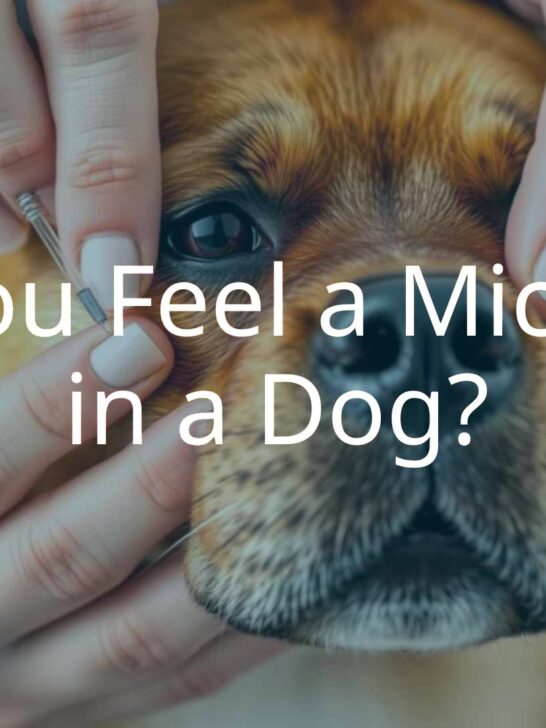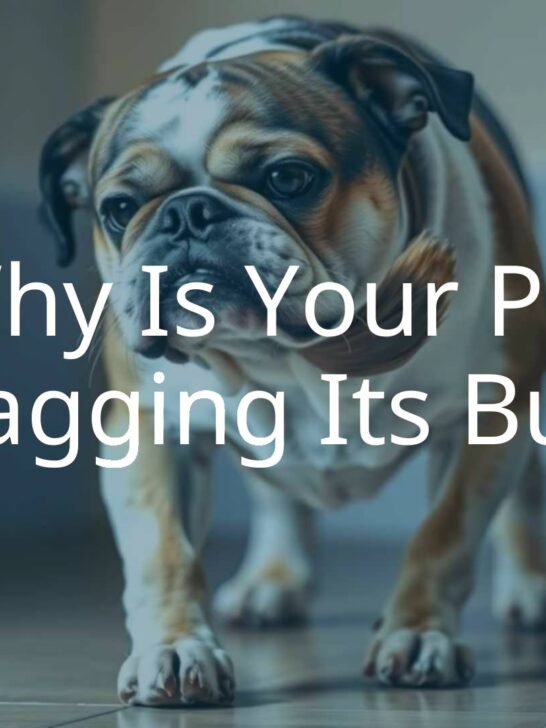Do German Shepherds Smell? Common Concerns You Should Be Aware Of
If there is one fact German Shepherd lovers everywhere are united about, it is this: “doggy odor” can and does happen.
But typically it is only first-time German Shepherd dog owners who worry that there is nothing they can do to control their dog’s odor.
Do German Shepherds smell is a question all GSD lovers may find themselves asking from time to time for a wide variety of reasons.
Sometimes, “that smell” is just your dog’s unique smell. But sometimes, that smell is a messenger telling you something is wrong.
Let’s find out the definitive answer to whether German Shepherds smell and why, and what you can do about it.

That German Shepherd Smell: Where Does It Come From?
As Psychology Today explains so well, every dog has a unique “scent signature.”
This scent signature is like your German Shepherd dog’s business card (or Tinder profile). It is a basic, biological part of your dog’s identity.
And yes, it is this scent signature that other dogs are smelling when they stick their wet canine noses into your dog’s very private places and vice versa.
You may or may not already know this, but each human being has a unique scent signature as well.
So this is just one more way that you and your dog are alike.
It is also why many canine training experts say to put something that smells like you in your puppy’s crate at night when they first come home with you.
To you, that scent identity may smell like a doggy odor. And who knows – maybe your scent identity smells like “people odor” to your pup.
Different dog owners can also have different levels of olfactory keenness, which means you may notice your German Shepherd dog’s smell more than your partner or child does.
It can also mean you are simply more aware of your dog’s typical odor and when there is something “off” about it, which is exactly what we are going to talk about here next.
When Your German Shepherd Smells Bad: What Does That Mean?
Sometimes you may smell an odor that just doesn’t smell right. You may not know right away why it smells “off” to you.
This can make it very hard to figure out what is causing the odor and what you need to do next.
So let’s take a closer look at some of the most common reasons your GSD dog’s odor may smell different or just stronger than it normally does.
Your German Shepherd rolled in something.
Let’s face it. For some reason, dogs seem to love rolling in yucky things that we would not dream of touching, let alone rubbing all over ourselves.
Why do they do this?
According to the American Kennel Club (AKC), canine experts and researchers have several theories but no definitive facts.
Your GSD may roll in things to disguise their scent (a throwback to their wild wolf origins) or to bring what they perceive as valuable information back to you (yay!).
In any case, the best way to determine if this is the cause of your dog’s odor is to sniff closely around their fur.
You may also need to touch their coat to see if it feels slimy, wet, or fouled in some way.
The remedy for this type of odor, of course, is a thorough bath!
Your German Shepherd is eating the wrong food
Another reason why German Shepherds may smell strange or unpleasant is gastrointestinal distress.
Here’s another way to put this – does your dog have gas?
Many dogs do, and canine veterinarians say one of the most common culprits is eating the wrong diet.
Here, this doesn’t mean your dog just ate something they shouldn’t have eaten, although this can cause odor problems and gas as well.
But it means your dog’s regular food may not be providing the nutrition they need or a diet they can’t seem to digest well.
When the food sits in the gut longer than it should, gas is an inevitable result.
Although here, be warned that changing foods can also cause temporary G.I. upset for a week or longer until your dog’s stomach has adjusted to the new food.
And feeding a too-varied diet can sometimes cause digestive distress. If your GSD seems to suffer from a sensitive stomach, this is more common for the breed than many owners realize.
Cutting back on the variety can help ease discomfort and gas.
If the odor you smell seems to be accompanied by chronic flatulence or other signs of digestive upset, talk with your dog’s veterinarian about changing foods.
Your German Shepherd has an infection
Have you ever heard the phrase “Frito feet?”
As New Haven Pet Hospital explains, dog paws naturally harbor a wide variety of bacteria.
Most of these bacteria are harmless but occasionally infection can take root.
In this case, it is the bacteria that is causing a smell many owners liken to the popular corn chips.
Yeast infection in the ears can also cause the “Frito” smell, so if you are not detecting the odor on your dog’s feet, sniff near the ears as well.
Once you locate the affected area on your dog’s body, you will want to confirm with your dog’s veterinarian that this is the cause of the smell that is bothering you.
Your dog’s vet may have a specific treatment they want to use with your dog based on the type of bacteria causing the infection.

Dirty Dog Syndrome: Is It Your German Shepherd Or Their Bedding?
All things considered, the German Shepherd dog is a relatively “clean” breed.
This dog breed doesn’t need an intensive amount of brushing or grooming.
The GSD typically doesn’t need a lot of bathing either because their coat is naturally water-repellant and somewhat self-maintaining.
But going too long without basic maintenance brushing, grooming and bathing can increase body odor.
In other words, what you know now to call your dog’s “scent signature” is suddenly in all capital letters and bolded.
So this means it is time to get down to business and give your dirty dog a bath and a good brushing.
But there is one thing that many German Shepherd owners forget about when it is bathing and grooming time – their dog’s bedding, blankets, and other belongings.
Dogs can sleep up to 14 hours per day at different life stages.
For example, during puppyhood and in the senior dog years, your German Shepherd may sleep a lot more than they do as a young and energetic adult dog.
But no matter how you slice it, even seven or eight hours of sleep a day adds up to a lot of time spent curled up in the dog bed.
So that can end up being one very smelly, stinky dog bed!
When you wash and groom your dog, it is always a good idea to give your dog’s bedding, blankets, toys, and personal belongings a good washing or at least a good airing out at the same time.
Many dog beds have removable covers that you can take off and wash. Putting your dog’s toys and blankets out in the sun can also help ease odor issues.
This way, your clean dog will go to sleep in a clean bed and your nostrils will smell the difference!
Does Your German Shepherd Have Bad Breath? What Can Cause This?
Unlike your German Shepherd’s normal unique scent signature, breath odor typically has a message attached to it.
Sometimes the message is simply that your dog is overdue for a tooth cleaning and some basic dental hygiene.
And sometimes the message is more complex than that and it may take some sleuthing to figure out where the underlying cause is coming from.
So let’s take a closer look at what can cause bad breath in a German Shepherd.
Poor dental hygiene
The first place to start is always with your dog’s basic dental hygiene routine.
You can try offering some dog-safe dental chews to clean out any trapped kibble residue or tartar build-up.
It may also be time to schedule a veterinary tooth cleaning.
But sometimes you know your dog’s teeth are clean and suddenly your GSD develops bad breath anyway. In this case, it may be triggered by one of these other common causes.
Diabetes onset
Canine diabetes is a known issue in the German Shepherd dog breed according to the Animal Health Center.
A change in breath odor is one of the warning signs of diabetes onset, but it is not the only sign to watch for.
If you have also noticed that your dog seems to drink more, pee more, eat more, and experience unexplained weight fluctuation, it is time for a visit to your dog’s veterinarian and a blood test.
Kidney issues
Kidney problems affect up to 10 percent of all dogs, regardless of breed.
The Drake Center for Veterinary Care explains that changes in kidney function can affect breath odor as uric acid is excreted through the breath.
As with canine diabetes, bad breath is not the only warning sign. However, extremely bad breath with no other visible cause is one of the main indicators.
Other signs can include blood in the urine, increased drinking, increased peeing, mouth ulcers, vomiting, diarrhea, appetite loss, and weight loss.
Cracked or broken tooth
Infection is one of the most common (as well as frequently overlooked) reasons for a German Shepherd’s bad breath.
A tooth infection can arise for many reasons. Tartar buildup, an abscess, and a cracked or broken tooth all make it easier for dental infection to take root.
Like nearly all dogs, German Shepherds love to chew.
Chewing on something too hard or something brittle (like a cooked meat bone) can cause the teeth to crack or the gums to get injured.
When your GSD develops bad breath and you can’t see any immediate reason for it, there may be a developing tooth issue in the back of the mouth.
You should make sure you take your dog in to see the veterinarian.
Dental/gum disease
Periodontal disease (gum disease) is nearly as common in dogs as it is in people. When the gums get infected, this can change the breath noticeably.
Some dog owners describe the change as an onset of “fishy” smelling breath.
As the Animal Health Center explains, up to 80 percent of all dogs will have some degree of dental disease by around age two.
German Shepherd dogs are more susceptible to periodontal disease than many other breeds.
Tartar buildup that is allowed to remain can quickly create an infection in the teeth and gums.
Untreated dental disease can shorten life expectancy by up to three years. So it is extremely important to have your GSD’s teeth cleaned and examined regularly.
Respiratory infection
Yet another often overlooked cause of canine bad breath is a respiratory infection.
Sometimes this is simply because of seasonal allergies which lead to irritated, inflamed respiratory passages.
In other cases, it may be caused by food allergies or environmental allergies.
Parainfluenza, a virus strain, is another cause of upper respiratory infection in dogs, which can initially present as a change in the breath.
Lip fold pyoderma
In dogs, environmental allergies can often cause “hotspots” – bright pink or red areas of inflamed skin that itch and feel hot to the touch.
As the Whole Dog Journal points out, German Shepherds are one of the dog breeds known to be more susceptible to a less common secondary infection that causes hot spots and bad breath – lip fold pyoderma.
The condition occurs in dogs with deeper lip folds. The bacteria colonize the interior of these lip folds and cause discomfort and a foul odor that is usually mistaken at first for bad breath.
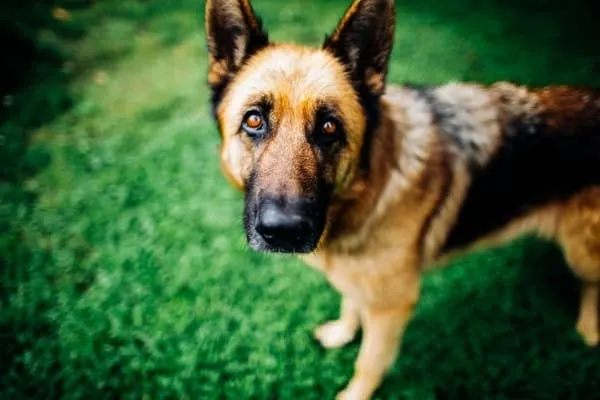
Is There a Way to Cover Up German Shepherd Bad Breath?
It seems like people have a solution to nearly every unpleasant odor – the shelves are loaded with products like air fresheners, odor eaters, candles, perfumes, essential oils, and similar others.
But while it can feel tempting to try to cover up canine bad breath, this is both not a very safe idea and harder than it sounds.
There is a reason your GSD has bad breath
The first reason you shouldn’t just try to cover up your German Shepherd dog’s bad breath is that, as we mentioned in the introduction here, bad breath is a messenger.
Your dog can’t talk to you in your language to let you know there is something wrong. Your GSD can’t point to a tooth that is hurting or a paw that itches.
But bad breath can let you know it is time to look more closely and maybe schedule an appointment with your canine veterinarian.
Even if you do manage to cover up bad breath in some way, it is unlikely to resolve on its own.
For this reason, it is much safer to accept the challenge and go to work to investigate the root cause so you can treat it and keep your dog healthy.
It is hard to “freshen” canine breath!
The things people do to freshen breath seem easy and intuitive – swish with mouthwash, chew some gum, suck on a mint.
But these are harder to try with your German Shepherd. It usually takes some amount of training just to get your GSD to let you look in their mouth or brush their teeth at home.
Your veterinarian may prescribe an oral rinse, but you still need to make sure you are using the right product for the cause of the bad breath and that you know how to use it with your dog.
Some dental chews claim to freshen dog breath. As WebMD Pets points out, some dental chews have been found to work to remove tartar buildup that can cause canine bad breath.
The Veterinary Oral Health Council (VOHC) maintains a list of approved products for use with dogs.
The list includes dietary modifications to maintain dental health, chews, toothpaste, gel spray, additives you can put into your GSD’s water, and more.
Here again, always talk with your dog’s veterinarian to identify the best product to address the underlying cause of your German Shepherd’s bad breath.
Can German Shepherd Bad Breath Be Cured? Yes and No
A healthy German Shepherd won’t have fishy or foul-smelling breath. But since bad breath is frequently a sign of an underlying health issue, there is no way to cure it.
Instead, simply stay aware of your dog’s regular breath so you can sniff out potential health problems and get your dog the right care quickly.
Related: Cleaning you German Shepherd’s eyes














